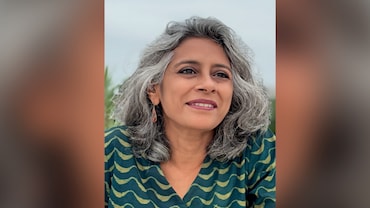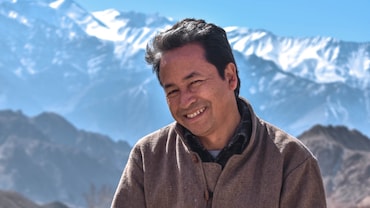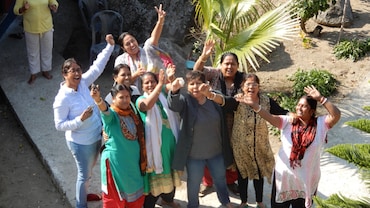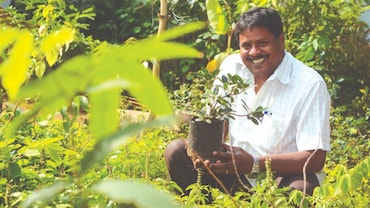- HOME
- /
- Features
- /
- Cover Story
- /
Extraordinary Indians: How Chandrakali Markam transformed her small Adivasi community through the power of microenterprise
Uneducated, co-dependent and powerless, women in Barga, MP are routinely limited to invisible roles. That is until Chandrakali Markam took the future into her own hands.
 CII Foundation
CII Foundation
Born into the family of a poor Adivasi farmer from the Agaria tribe in Barga, a village in the Dindori district of Madhya Pradesh, life offered Chandrakali Markam few choices. Poverty, regressive norms and limited connection to the world beyond the surrounding forests left Barga’s residents struggling to think any further than the next meal.
“Life was very difficult in those days,” says Markam, now 35. “My brothers would travel very far in search of work. Without money to buy seeds our family’s patch of land stayed untilled,” she adds, her voice dipping as memories of depleted food stores and desperation surface.
Her story is not a unique one. Rain-dependent farming and land fragmentation make livelihoods untenable in this remote terrain. Uneducated, co-dependent and powerless, women are routinely limited to invisible roles: unpaid field workers, child-bearers. Taken out of school in class five and married off at the age of 11, Markam remembers tearfully protesting. “Father said, ‘You’re a girl. Why would you need to study any further?’” she recalls. It is not without irony then that it was Markam, along with scores of women like her from across the district, who brought prosperity and self-reliance to the impoverished community through small savings and self-help groups (SHGs).
Markam, then a 19-year-old mother, connected with, and then secretly joined, the first SHG in her village, formed under the aegis of the grassroots organization PRADAN—a decision that opened up her closed-door world to a slew of new ideas and opportunities. “I could never have imagined such things were possible on my own,” she says. Learning all she could through workshops and meetings, Markam soon began galvanizing others to take part in savings schemes and livelihood ventures. Her efforts had an impact—women who began saving as little as 50 paise per week, built their deposits up to Rs 20 and SHGs came up in every village in her taluk, each around 20 members strong.
In 2006, Markam became the driving force behind a registered poultry farming cooperative for landless families. From 60 producers, the enterprise is now powered by 360 across 23 villages. “I visit all the farms to make sure they are running smoothly. My husband helps me too,” she says. Under her supervision, the cooperative showed a turnover of Rs 14.5 crore and a net profit of Rs 8 lakh in 2018–19. She has also launched other income-generating initiatives, such as kitchen vegetable gardens and mushroom cultivation. That she achieved this without any real formal education and in the face of naysayers who doubted and disparaged a woman playing an active role in the community, is astonishing.
Markam’s work has also affected the perceived roles of women in her community and she regularly raises important issues, such as the need for higher education for girls and breaking gender stereotypes in domestic work, at community meetings. “People have seen that women can make a difference too and should be treated with more respect. We are now much better cared for,” she adds proudly.
On earning the 2020 Women Exemplar award from the CII Foundation, which supports women from deprived communities in their development efforts, Markam says, “It feels amazing to have helped so many people. None of this would have been possible without support and partnership—both from the outside and among our people.”
When asked about her plans for the Rs 3-lakh prize money, she sounds hesitant—perhaps unfamiliar with such personal windfalls: “I’ve bought a motorcycle to help me travel.” She ponders for a beat: “I also want to open a general-goods shop in my village, so people can get supplies without going to the nearest store nine kms away,” she adds, more confidently.
This profile is part of RD's annual series 'Extraordinary Indians' that celebrates ordinary individuals changing their communities through courage, compassion and selfless service to humanity. To read about more local heroes click here.






